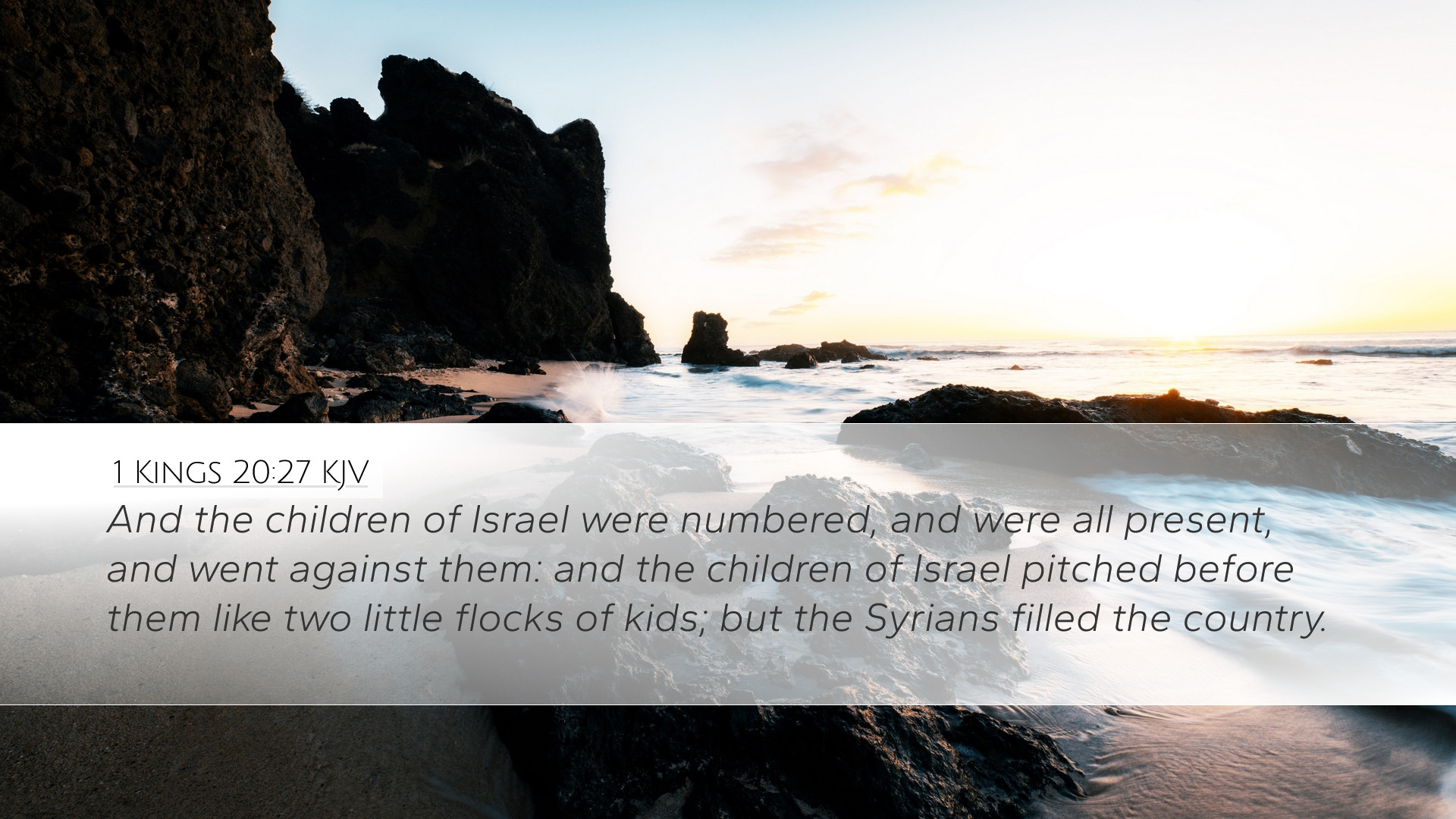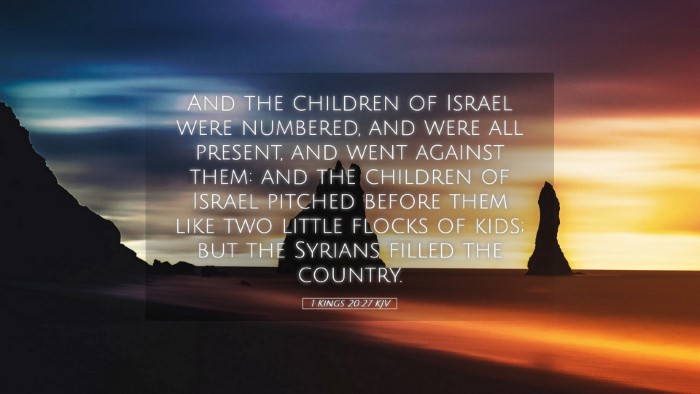Commentary on 1 Kings 20:27
Verse Context: 1 Kings 20:27 states, "And the children of Israel were numbered, and were all present, and went against them: and the children of Israel pitched before them like two little flocks of kids: but the Syrians filled the country."
This verse occurs during the confrontation between the Israelites and the Syrians, highlighting a moment of insignificance contrasted with the formidable power of the enemy. The imagery used illustrates the vulnerability of Israel.
Insights from Matthew Henry
Israel’s Condition: Henry emphasizes the state of Israel, describing them as "two little flocks of kids," which conveys a strong sense of helplessness and innocence. The smaller number signifies their weakness in military strength when compared to the vast army of the Syrians.
God's Sovereignty: Despite the Israelites' being seemingly outmatched in numbers, Henry points to the overarching theme of God’s sovereignty. He reminds the reader that divine assistance can transform the most feeble into victors, suggesting that God’s presence among them can lead to triumph regardless of their apparent weakness.
Reflections from Albert Barnes
The Art of Warfare: Barnes notes the military strategies employed by the Syrian king, Ben-Hadad, who underestimated Israel’s potential. He reflects on the strategic underpinnings of Israel's position and how it exemplifies reliance on God rather than sheer numbers or fortifications.
Symbolic Meaning: The reference to "two little flocks" serves not just as a visual image, but also as a potent symbol of hope for Israel. Barnes sees this as a reminder that true strength lies not in oneself, but in reliance on the Lord, making the point that God can deliver His people in their moment of need, irrespective of the odds.
Thoughts from Adam Clarke
Divine Providence: Clarke discusses how this moment signifies God’s providence acting through unlikely means. He points out that while the children of Israel appeared weak, they were still fulfilling God’s plan and purpose. Their numerical inferiority does not mitigate God's intentions for their deliverance.
Hope in Despair: Clarke reflects on the implications of this verse for believers today. He suggests that when believers find themselves feeling overwhelmed or outnumbered, they should remember that God's might is manifested in weakness, providing an opportunity for faith and trust in divine deliverance.
Theological Implications
- The Nature of Strength: This passage challenges the prevailing views of strength and victory, inviting reflection on the nature of divine strength which often manifests in humility and dependence on God.
- God's Deliverance: The assurance that God can save despite unfavorable circumstances serves as a timeless truth for believers, emphasizing that His potential is limitless even when ours appear confined.
- Community and Unity: The gathering of the ‘children of Israel’ points to the need for community unity in the face of opposition, showing that together they can stand firm even against great odds.
Personal Application
For Pastors: This verse serves as a reminder to encourage congregants to rely on God’s strength rather than their own. Pastors can utilize this scripture to demonstrate that God often works through the small and humble to achieve great victories.
For Students and Theologians: The nuances of this verse offer a rich ground for exploration in terms of biblical Hebrew imagery, the socio-political context of Israel, and its reflection upon contemporary Christian faith and practice.
For Scholars: A comparative analysis of military tactics demonstrated in this event contrasted with other battles in the Old Testament can be enlightening, providing insight into God's overarching plan for His people as narrated through historical accounts.


